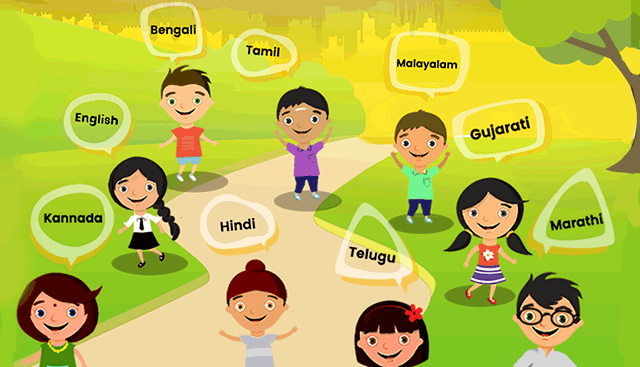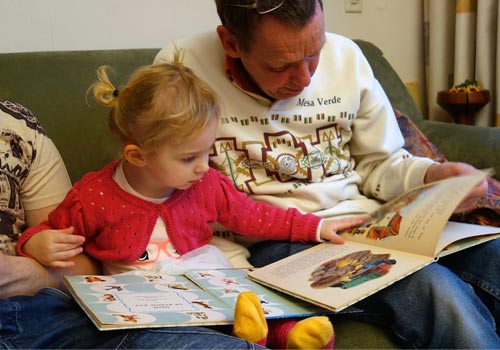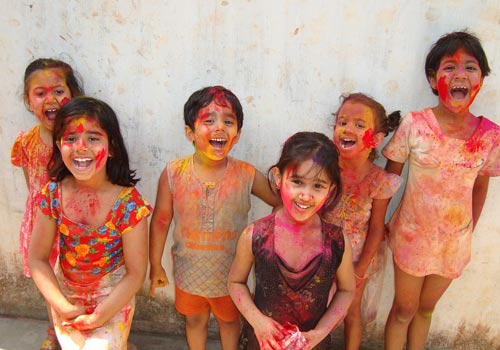


The way we talk, the language we speak, the environment in which we grow up reflects who we are and where we belong. Our culture, traditions, perceptions and beliefs define our identity and give us a reason to feel united. Mother tongue too helps us portray the best version of ourselves by helping to articulate our thought process in a better way.
These days however, children mostly interact in English.Blame the cosmopolitan world parents are part of, their work life orinfluence of western culture, parents either converse in English or in their own brand of the language.(Hinglish, Benglish or whatever you call it). Wait that’s not all.Children generally grow up in nuclear families away from their grandparents and other relatives and as such they hardly interact in their mother tongue.So, how would kids communicate fluently in their native tongue? This is a question every parent should ponder about.
In this blog, we give some important reasons for parents as to why they should make their children read in their mother tongue:
Reading in and speaking your mother tongue has its own charm. Parents should be aware of the fact that certain words and emotions can only be expressed in a mother tongue. There are words of daily use which have no meaningful translation in English and by avoiding reading/ speaking to your kids in their mother tongue, kids miss out on learning new words. Also, there are stories with strong cultural references that read much better in a mother tongue than in English. A “Chacha Chaudhary” wouldn’t have been engrossing enough if it was not written in Hindi. As such, you should read books to your kids in mother tongue to give them a better essence of the story.

Children not only learn faster in mother tongue but also become more creative as individuals if they are made to read in their mother tongue. According to research their thought process becomes more active and the imagination level reaches its peak. Remember those days when you never had any limitations fantasising about your favourite characters. Some days you would want to fly like a “Shaktimaan”, the other days you would want to dress like a “jasmine”. Well, you will have to agree to the fact that the characters were more relatable because of their origin. Every child deserves to fly high with their imagination so, read to them their favourite stories in their mother tongue and sharpen their thought process and imagination.

Barbara Johnson once said that “to be in your children’s memories tomorrow, you have to be in their lives today.” In today’s world where the word busy has become a part and parcel of everyday lives, stories act as the best medium to bridge the gap between you and your little bundle of joy. And especially if the book is written in their mother tongue, it will make the bond stronger. Surprised? Well, research shows that kids connect better with parents using their mother tongue. So, the next time you choose a story for your little ones, make sure it’s written in their native language. It will definitely attract your children’s attention and they will for sure enjoy every bit of you reading it to them.

Every parent wants their children to have a good grasp of language as it will open up various opportunities for them in the future. Different languages, as we know, have different syllables, words, accent and phonetics. Hence, reading books in mother tongue to them, is an easy way to develop a strong sense of language early on. To master the art to learning different languages one must first have a proper understanding of their mother tongue. This will not only help kids to learn other languages faster but will also create a strong desire among them to know about different languages.

As we step into the world of westernization, it is very important for parents to make sure that their children stay rooted to their grounds and imbibe in them values and ethics related to their culture. Language as such plays a crucial role in painting pictures of one’s inherent values. Reading stories to kids in their mother tongue will help them discover their roots in a better and more imaginative way. The emotions, beliefs and traditions related to one’s origin can best be expressed in their mother tongue and therefore to make kids aware about the same parents should read to them in their native tongue.
